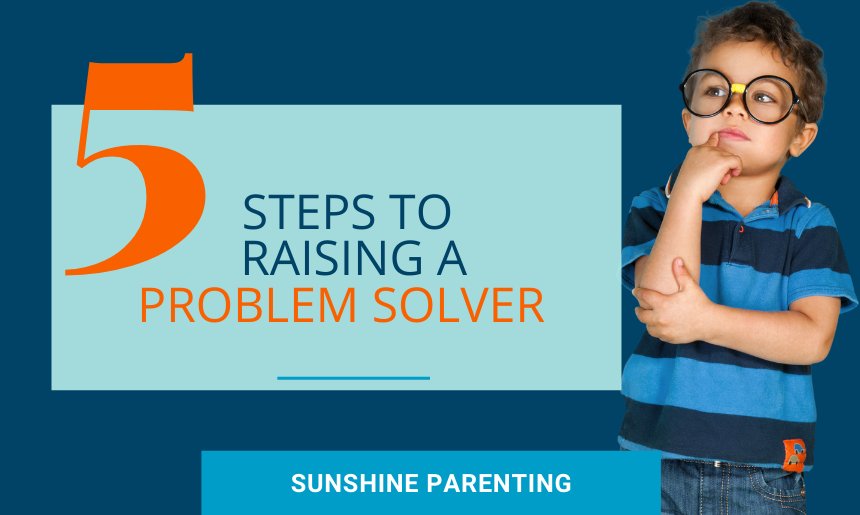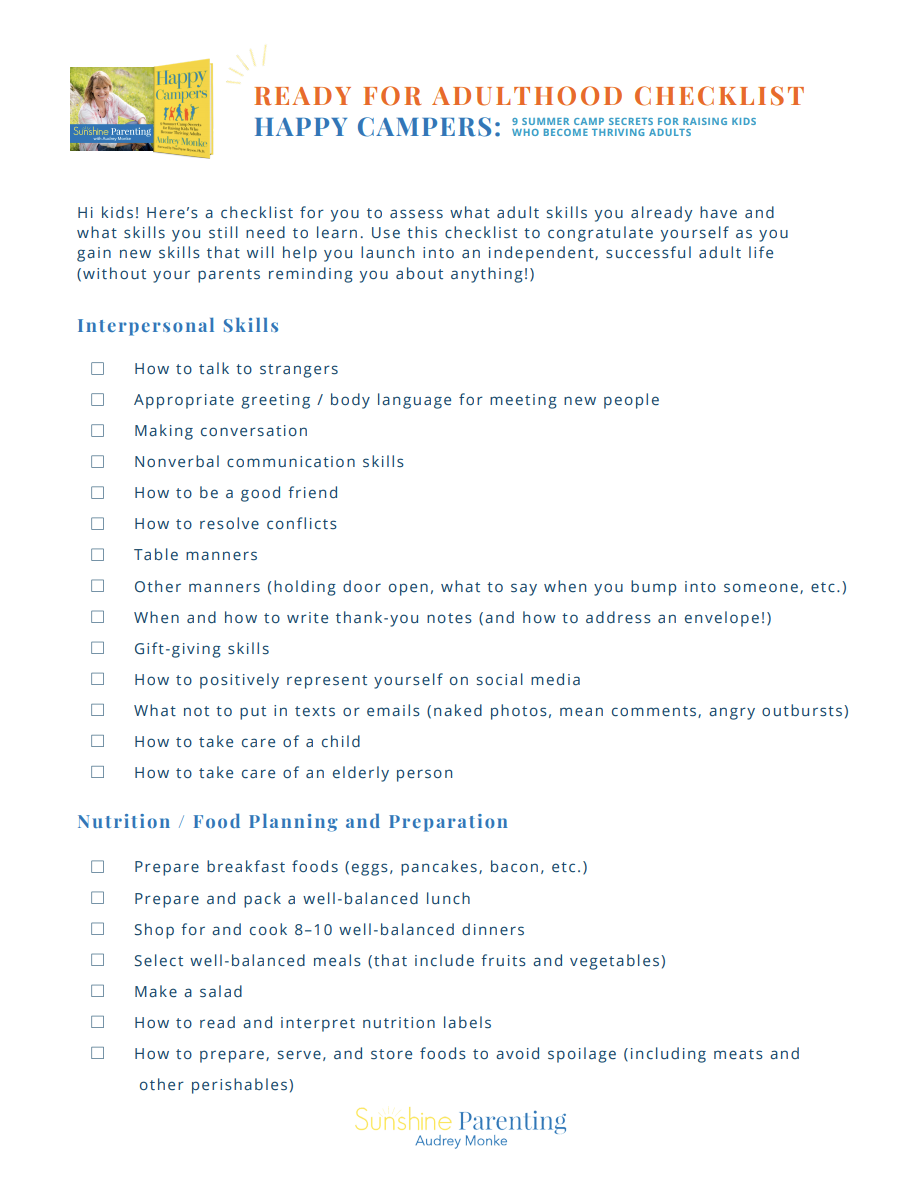
One of the most important skills our kids need to learn in order to become responsible adults is the ability to solve their own problems. Hovering and overparenting certainly aren’t helpful in this department, but it’s just so darn tempting to step in and solve our kids’ minor problems because we are so good at it! Yes, it’s true. We’re better at solving most problems than young children. But that’s because we’ve had practice. And if we don’t give our kids practice, they won’t get a chance to practice and learn problem solving themselves.
Next time your child approaches you with a problem, be it an interpersonal one (mean comment from a classmate, new friend they want to approach) or a more practical one (forgot to pack something important for school), keep these five steps in mind and you’ll be well on your way to raising a problem solver!

Are you getting your child ready for adulthood?
Print my Ready for Adulthood Checklist to review the skills kids need to become thriving adults!
Step 1: Offer a strong dose of EMPATHY:
“Oh, that sounds really hard.”
“What a bummer!”
Although it is tempting (and a normal parental reaction) to get extremely frustrated (especially if the problem needing to be solved is 100% caused by your child), getting angry or saying, “I told you so” does not help your child as much as knowing that you feel bad about the problem and are rooting for them to solve it.
Step 2: Lovingly give the problem back to your child:
Give them plenty of time to think about and offer solutions.
Step 3: Get permission before sharing ideas:
“Would you like to hear what other kids have tried?” (Do not use “Would you like to hear what I think you should do?” – it doesn’t come across the same way.)
If they respond, “no,” then back off and express your confidence in their ability to solve this problem.
If they respond “yes,” then offer some ideas:
“Some kids who’ve had someone say a mean comment to them at school ignore the kid and find others to play with.”
Step 4: Help them review and evaluate their menu of ideas:
Continue prompting them to think of solutions and different possible outcomes. Refrain from judging their ideas (i.e. don’t say, “That’s a terrible idea.”) Just listen and encourage them to keep thinking of solutions.
Step 5: Let them solve (or not solve) the problem:
Allow them to learn from solving (or not solving) the problem. Express confidence in them and interest in the outcome.
“I know you can work this problem out with your friend. Let me know how it goes!”
Problem solving is an important skill that is learned, like most things, through practice and failure. While our kids are young is a great time to teach them to start solving their small problems so that they grow up to become adults who are good at solving bigger ones!
Related/Resources:
